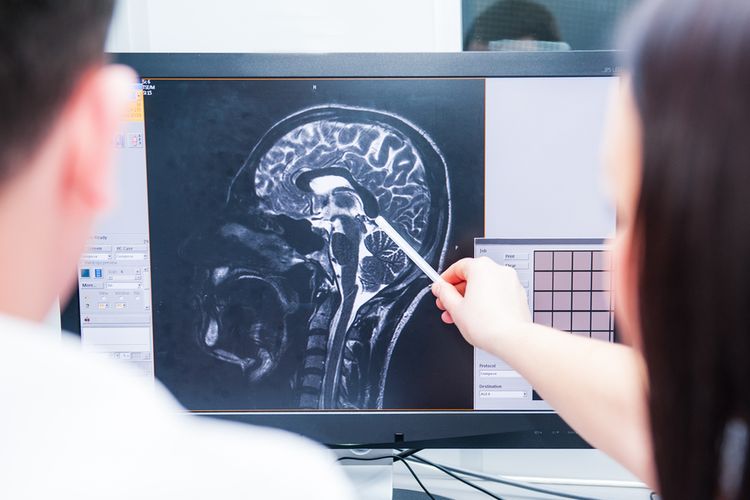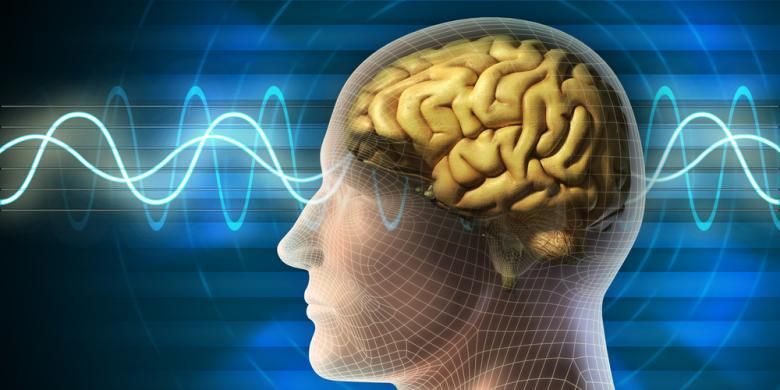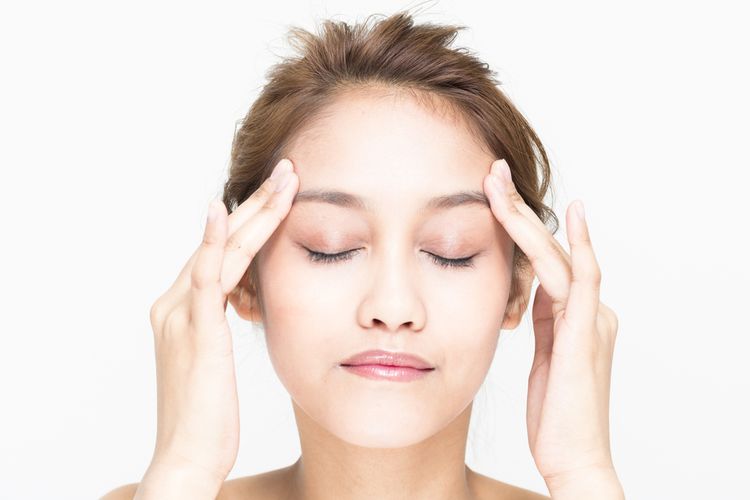Here are 10 benefits of doing regular exercise
KOMPAS.com – Exercise is defined as a movement that makes your muscles work and forces the body to burn calories.
There are many types of physical activity in sports, including swimming, running, walking, dancing and more.
Being active has been shown to have many health benefits, both physically and mentally.
Also read: INFOGRAPHIC: 8 Sports for Heart Health
Launch Healthline, February 10 2017, here are 10 benefits of regular exercise:
1. Make you feel happier
 Happy illustration
Happy illustrationExercise can improve your mood and reduce feelings of depression, anxiety, and stress.
This results in changes in the parts of the brain that regulate stress and anxiety. It can also increase the brain’s sensitivity to the hormones serotonin and norepinephrine, which relieve feelings of depression.
In addition, exercise can increase the production of endorphins, which are known to help generate positive feelings and reduce pain perception.
Additionally, exercise has been shown to reduce symptoms in people suffering from anxiety. This can help them become more aware of their mental state and practice distraction from fear.
Interestingly, it doesn’t matter how strong your sport is. Mood can benefit from exercise, regardless of the intensity of the physical activity.
Also read: Get to know what cardio exercise is and its benefits for health
2. Helps lose weight
 weight illustration
weight illustration Several studies have shown that a sedentary lifestyle is a major factor in weight gain and obesity.
To understand the effect of exercise on weight loss, it is important to understand the relationship between exercise and energy expenditure.
Your body consumes energy in three ways, namely digesting food, exercising, and maintaining body functions such as heart rate and breathing.
When dieting, reducing your calorie intake will lower your metabolic rate, which will delay weight loss.
On the other hand, regular exercise has been shown to increase your metabolic rate, which will burn more calories and help you lose weight.
Also read: 8 Best Types of Exercise that are Effective for Lose Weight
3. Good for muscles and bones
 Illustration of six pack abs muscles
Illustration of six pack abs musclesExercise plays an important role in building and maintaining muscle and bone strength.
Physical activity such as lifting weights can stimulate muscle building, when paired with adequate protein intake.
This is because exercise helps release hormones that increase your muscles’ ability to absorb amino acids.
As we age, humans tend to lose muscle mass and function, which can lead to injury and disability.
Practicing regular physical activity is essential for reducing muscle loss and maintaining strength as you age.
Exercise can help build bone density when you are young, in addition to helping prevent osteoporosis later in life.
In addition, studies have shown combining aerobic exercise with resistance training (weight lifting) can maximize fat loss and maintenance of muscle mass, which is essential for maintaining body weight.
Also read: Paragliding, an active symbol of the return of adventure sports
4. Can increase energy levels
 Sports illustration
Sports illustrationExercise can be an energy booster for healthy people, as well as those suffering from various medical conditions.
One study found six weeks of regular exercise reduced fatigue for 36 healthy people who had reported frequent fatigue.
Additionally, exercise can significantly increase energy levels for people suffering from chronic fatigue syndrome (Chronic Fatigue Syndrome) and other serious illnesses.
Not only that, exercise appears to be more effective at fighting CFS than other treatments, including passive therapy such as relaxation and stretching or no treatment at all.
In addition, exercise has been shown to increase energy levels in people suffering from progressive diseases, such as cancer, HIV / AIDS and multiple sclerosis.
Also read: INFOGRAPHIC: Are there any dangers to exercising by wearing a mask?
5. Can reduce the risk of chronic disease
 Illustration of brain diseases that cause memory or memory problems.
Illustration of brain diseases that cause memory or memory problems.Lack of regular physical activity is a major cause of chronic disease.
Regular exercise has been shown to improve insulin sensitivity, cardiovascular fitness and body composition, but lower blood pressure and blood lipid levels.
Conversely, lack of regular exercise, even in the short term, can lead to significant increases in belly fat.
This can increase the risk of type 2 diabetes, heart disease and premature death.
Therefore, daily physical activity is recommended to reduce belly fat and reduce the risk of developing this disease.
Also read: History of Determining National Sports Day, When and Where?
6. Maintain healthy skin
 Illustration of bright and healthy facial skin.
Illustration of bright and healthy facial skin.Your skin can be affected by the amount of oxidative stress in your body.
Oxidative stress occurs when the body’s antioxidant defenses are unable to fully repair the damage caused by free radicals to cells.
This can damage their internal structures and damage your skin.
Although intense and strenuous physical activity can contribute to oxidative damage, regular moderate exercise can increase your body’s production of natural antioxidants, which help protect skin cells.
In the same way, exercise can stimulate blood flow and induce skin cell adaptations that can help delay the appearance of aging skin.
Also read: Diligent exercise but Can Have a Heart Attack? This is the explanation …
7. Maintain brain health and memory
 Illustration
IllustrationRegular exercise can improve brain function and protect memory and thinking skills.
Exercise can also increase your heart rate, which triggers blood and oxygen flow to your brain. It can also stimulate the production of hormones that can increase the growth of brain cells.
In addition, the prevention of chronic diseases that you get through exercise is also beneficial for your brain, because its function can be affected by these chronic diseases.
Exercise has been shown to cause the hippocampus, a part of the brain vital for memory and learning, to grow. This serves to improve mental function in adults.
Then, exercise has been shown to reduce changes in the brain that can lead to Alzheimer’s disease and schizophrenia.
Also read: This type of exercise with children can be tried at home
8. Can help relaxation and sleep quality
 Sleep illustration
Sleep illustrationRegular exercise can help you relax and sleep better or soundly. In terms of sleep quality, the energy depletion that occurs during exercise stimulates the healing process during sleep.
In addition, the increase in body temperature that occurs during exercise is thought to improve sleep quality by helping to lower it during sleep.
Many studies on the effects of exercise on sleep have reached the same conclusion. One study found that 150 minutes of moderate to high intensity activity per week can improve sleep quality by up to 65 percent.
Another showed that physical activity for 16 weeks improved sleep quality and helped 17 insomniacs sleep longer and deeper than the control group. As a result, it helps them feel more energized during the day.
What’s more, getting regular exercise is also beneficial for the elderly, who tend to be affected by sleep disorders.
You can be flexible with the type of exercise you choose. Aerobic exercise alone or aerobic exercise combined with resistance training can both help improve sleep.
Also read: Performance sports can take place outside the red zone
9. Can reduce pain
 headache illustration
headache illustrationChronic pain can be debilitating, but exercise can actually help reduce it.
Over the years, the recommendations for treating chronic pain have been rest and reducing activity.
However, recent research suggests exercise helps relieve chronic pain.
A review of several studies showed exercise helped participants deal with chronic pain, reduce pain, and improve their quality of life.
Several studies have shown that exercise can also help control pain associated with many health conditions, including chronic low back pain, fibromyalgia, and chronic soft tissue shoulder disorders.
In addition, physical activity can also increase pain tolerance and decrease pain perception.
Also read: Died from using a mask during sports, is that right?
10. Better sex life
 Illustration
IllustrationExercise has been shown to increase sex drive.
Doing regular exercise can strengthen the cardiovascular system, improve blood circulation, tone muscles, and increase flexibility. They can all improve the quality of your sex life.
Physical activity can increase sexual performance and sexual pleasure, as well as increase the frequency of sexual activity.
A group of women in their 40s observed that they had more orgasms when they undertook vigorous exercise, such as sprinting and weight training.
In addition, among 178 healthy men, men who reported more hours of exercise per week had higher sexual function scores.
One study found a simple routine of walking six minutes around the house helped 41 men reduce their erectile dysfunction symptoms by 71 percent.
Also read: Already run the 3M Health Protocol, it’s time to exercise